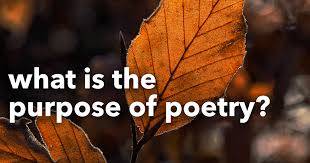Your next book is about the connection between faith and poetry, and you have quoted the poet and former head of the National Endowment for the Arts Dana Gioia, saying, “It is impossible to understand the full glory of Christianity without understanding its poetry.” What does that mean to you?
There’s poetry all over Scripture, in Psalms, Song of Songs, Lamentations, Proverbs, Job, Ecclesiastes and the Prophets. And there’s poetry in the liturgy and in the hymns and songs of the church. The Bible beckons us to think about the poetry that exists beyond Scripture itself, which can help us enter into Scripture in a different way. The songwriter Andrew Peterson said: “There have always been poets underfoot. God just keeps making them.” Why does God keep making poets? In every generation and every culture across the world there are poets. There’s a great poem by W.H. Auden, an elegy for Yeats, and he says three times that poetry “survives.” No matter what else, it’s going to keep going. It’s just a part of who we are as human beings, so it behooves us to think about why is it that God made us as people who write poetry?
So why does God keep making poets? Or, to put it another way, what is this inherent human urge for poetry?
One reason I think we keep making poetry is because we are ourselves poems. There’s a verse in the Bible (Ephesians 2:10) in which we are described as the “handiwork of God.” ,as human beings, the poems of God. So we keep making poetry because we are ourselves poems.
Another way to think about it is that we keep making poetry because it’s part of natural curiosity, exploration and discovery. I trace poetry back to the story in Genesis, when God brings all the creatures of the world before Adam and says, “You name it.” Poetry is created in the world as one of the very first vocations and tasks of human beings, because poetry very often is an attempt to name the world properly, because to name it is to know it. And if we’re going to know it well, we’ve got to name it well, and if we’re going to name it well, we’ve got to pay very careful attention to this world that God has made. So I also think of poetry as the art of attention. It’s the ability to pay attention to the world and produce for the world the name of something that must be known.
How has poetry affected your faith or inspired you?
I think it’s hard to have faith without wonder. You need to have some sense of awe, mystery and not-knowing-ness to have faith in possibilities.
Why is Poetry Important?
Poetry is a form of creative writing that exists in cultures around the world. It is very important to the literary and cultural landscape of humanity for a wide range of reasons.
Poetry can be a powerful teaching tool, helping students improve their literacy. It can also allow writers to express their emotions and allow readers to connect to those emotions. Poetry is also connected to aesthetics, or the exploration of what is beautiful in the world.
The poetry of a particular culture is important when it comes to understanding that culture's history and values. In some cases, poetry can help build community among people, both through mutual self-expression and through people sharing poetry that they love with others. In many cases, poetry can also help scholars learn more about various periods of history and what the people who lived in those times felt and understood the world around them.




No comments yet
Be the first to share your thoughts!